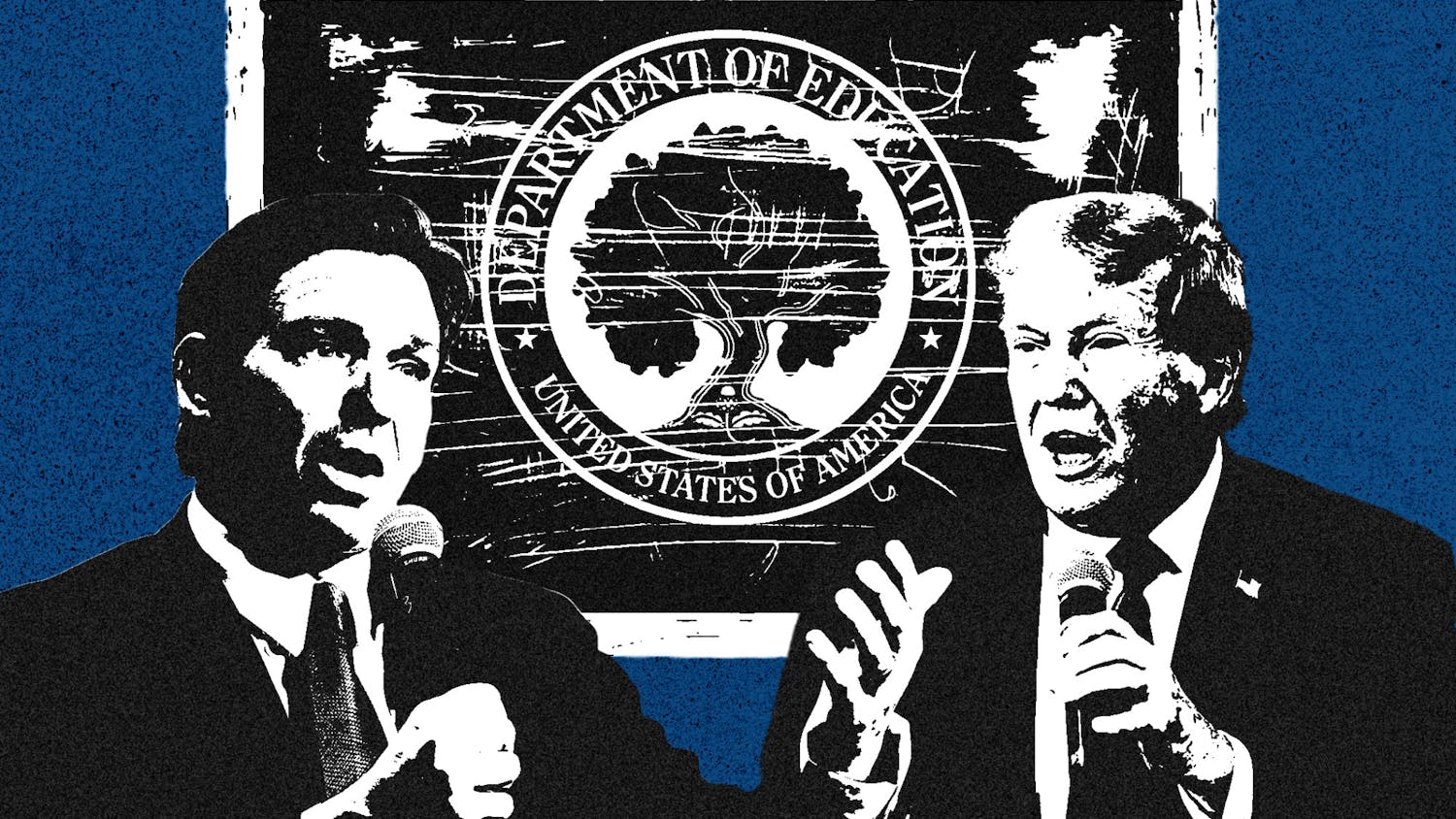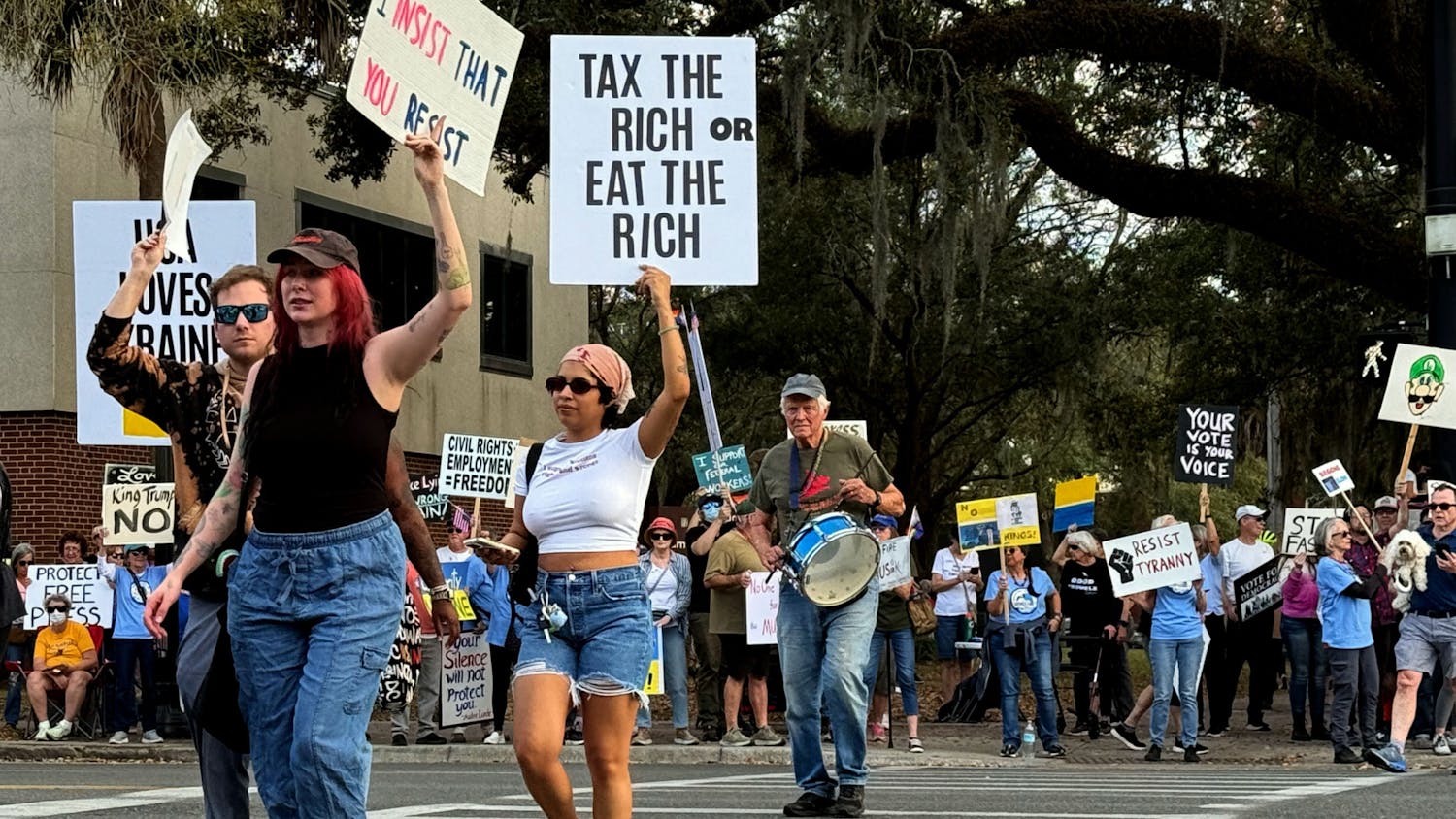Sen. Bernie Sanders, I-Vt., and Donald Trump may seem extremely different in their views, but they are noticeably similar in their public appeal. Bernie is a democratic socialist who favors the European socialist way of running government, which involves government-imposed wealth equality via hefty taxes. Trump lies on the opposite end of the spectrum, believing in the magical powers of capitalism and pure competition. That’s right — a democratic socialist and the single-most capitalistic name in history could be duking it out this November. We may be in for quite the show.
These two men are the direct enemies of each other’s campaigns. Both campaigns are using anger to appeal to the American public, with Bernie vetting against the “1 percent” (Trump) and Trump bashing established D.C. politicians (Sanders).
The recent New Hampshire polls got me thinking about an issue close to the hearts of both Bernie and Trump: executive pay in the country. Mr. anti-1 percent percent and Mr. 1 percent himself are currently dominating the political world, leaving voters to decide between two extremes. Both present vastly different views about the distribution of wealth in America, with Bernie clamoring for more income equality and Trump favoring raw, competitive capitalism.
The topic of executive pay is only a thing because many believe it to be directly indicative of income inequality in our economy. Currently, the U.S. leads the world in this category, with the average CEO making 354 times more than the average worker below them. This is a dramatically larger ratio than those of the everything-is-wonderful countries of Europe, who we seem to love gushing over as superior to us. A few years ago, the Swiss tried to pass a law that would cap the ratio at 1:12, only for it to be denied by 65 percent of voters.
Is there growing income inequality in America today? Yes, data seems to suggest this. But is executive pay a major factor in this? It certainly isn’t the sole cause, and trying to fix it with governmental regulations might bring about greater consequences in the long run.
Anyone who’s ever paid attention in an economics class has been taught supply and demand. That’s what all executive pay, and all pay for that matter, should be. The more skilled and in-demand something or someone is, the higher the price for the work. There aren’t waiting rooms filled to the brim with individuals qualified to be CEOs. It is due to the scarcity of this resource that such high wages are being paid. In other words, they are successful businessmen and women who have earned it.
People act like CEOs sit around counting wads of cash and petting fluffy white cats on their golden throne. Many paint executives as evil kings from the feudal times, sucking up every penny from the peasants populating their land. Executives and the “1 percent” have become targets of many young people, especially those on the left. And what for? Because they have jobs that pay well? Will taking money from them suddenly result in everyone getting richer? Does the money taken from Amazon CEO Jeff Bezos’ checking account magically end up in yours and mine?
America’s business leaders and wealthy people do not let their money grow stagnant. It doesn’t just sit in large, gold vaults collecting dust. I am not for executives getting paid whatever they desire, but instead for them getting the pay that their company feels they deserve. These people reinvest it into the economy, keeping the money circulating and providing jobs. Why get mad at the people who create and provide work? Take away their money, and they’ll take their business — and the jobs — elsewhere.
Executive pay is not the big problem right now. Regulating it will not suddenly fix income inequality. Although wealth distribution sounds great on paper, it is a whole other story when put into action. Instead of directing all anger towards executives and the “1 percent,” I feel that there are more pressing and impactful issues needing attention, such as foreign policy and international trade, that have more immediate impacts on the country’s overall health.
Capitalism is what helped make America prosper in the twentieth century, and I fear losing it will negatively affect the twenty-first century. For now, I would say focusing less on fighting our country’s executives, and more on electing the right people to office would do more to help all of us. This century has already brought significant changes to our country, but the American Dream is still far from dead.
Andrew Hall is a UF finance sophomore. His column appears on Thursdays.





